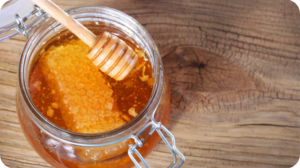For those who are embracing a sugar-free diet, alternative sweeteners that act like sugar and don’t leave a chemical aftertaste are worth their weight in gold. That’s why the plant-derived sugar alcohol erythritol has been prized by bakers and manufacturers alike. It reacts chemically much like sugar does, without the gastrointestinal issues common with other sugar alcohols. Other sweeteners, such as monk fruit, are often blended with erythritol to lower the cost and create a product that acts more like refined sugar than other substitutes do (monk fruit and stevia are both exponentially sweeter than sugar; erythritol can lessen that sometimes unpleasant intensity).

Many sugar-free chocolates and beverages, as well as other retail products, also leverage the properties of erythritol. As a zero-calorie, no-glycemic index (GI) substitute, it has long been considered close to the ideal alternative sweetener.
Unfortunately, research published last year indicates a link between high levels of erythritol in the bloodstream and an increased risks of heart attacks, strokes, and death from cardiovascular disease. Researchers believe that erythritol can potentially increase the incidence of blood clotting that can lead to a catastrophic event.
Alternatives
More research needs to be done to confirm and expand on this preliminary study, but for now, the safest course of action for anyone looking to avoid refined sugar while still enjoying sweet treats is to seek out other sugar substitutes. Fortunately, there are several.
- Monk fruit. In response to these findings, new erythritol-free monk fruit sweeteners have become available. Some are blended with other sweeteners (most frequently, allulose). However, if you opt for a pure monk fruit sugar replacement, be aware that you’ll have to adapt recipes for the far-sweeter (100 to 250 times) option. That’s less of an issue if you’re looking for a sweetener that won’t be part of a larger confection, such as something to put in your coffee.
- Stevia. Plant-based Stevia has a long track record as a sugar alternative. It is common in mass-produced sweets, and is offered as a sugar alternative for baking and cooking. Although Stevia is a zero-calorie, zero-GI product, it is also 200 to 350 times sweeter than refined sugar, and has a slightly bitter chemical aftertaste that makes it less than perfect for baked goods—and changes the overall flavor profile of sugar-free candy and chocolates at retail.
- Allulose. Less sweet than refined sugar, allulose mimics the chemical reactions of its refined cousin (it can even be used in caramel!). It is called a “rare sugar” and is derived from a small number of fruits, most notably figs. The taste is appreciably different than refined sugar, but this is a zero-GI sweetener. Some research has shown that allulose may even contain anti-inflammatory and anti-carcinogenic properties.
- Sugar alcohols. Inexpensive and super sweet, sugar alcohols have long been the substitute of choice for manufactured sweets. The drawbacks of commonly used sugar alcohols like xylitol and maltitol include chemical aftertastes and gastrointestinal side effects, like bloating, gas, and diarrhea. If you consume large amounts of these sweeteners, you can develop a sensitivity to them that makes the side effects more severe. Sugar alcohols are also offered as packaged sweeteners, but are far different in flavor and chemical reactions than refined sugar.
Given refined sugar’s well-established links to serious diseases, a sugar-free diet is an excellent step toward healthy nutrition. But as the latest research on erythritol shows, it’s important to be careful and thoughtful in the sugar substitute you choose to consume. In any case, eating fruits and naturally sweet organic products like peanut butter can be a better choice than any baked or manufactured sweets.





